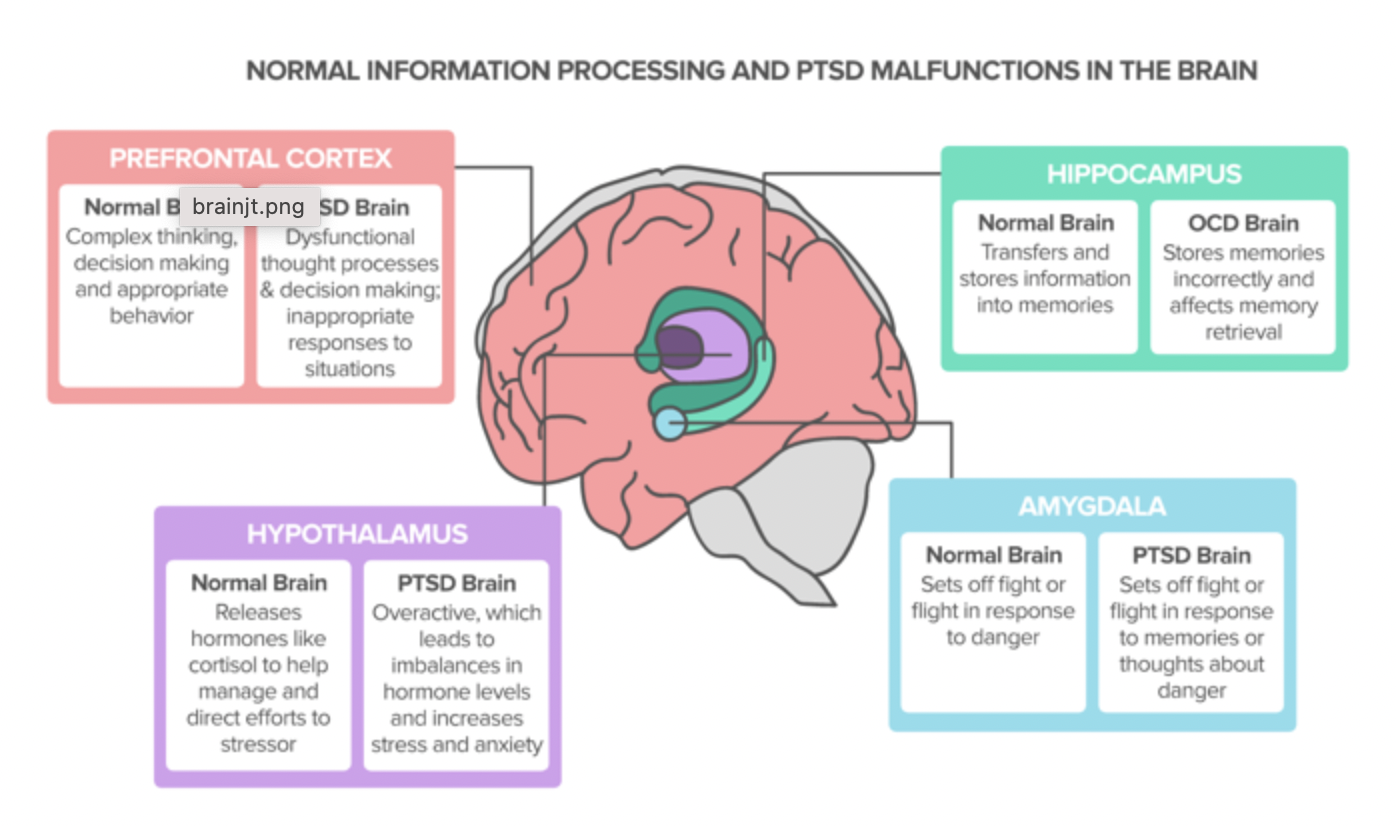One of the main things I experience in session with trauma survivors is their struggle with shame. There is shame in how a survivor feels like they reacted to a trauma when it happened, but also how they feel triggered by the trauma in their day to day.
Survivors tend to beat themselves up for being triggered, or not knowing how to get out of their trauma response. One thing that I felt is helpful to for survivors to know is how trauma affects the brain.
Your is made of parts. There is the thinking part of the brain is called the prefrontal cortex. There is the emotional part of the brain, the limbic system, and then brain stem, the most primitive part of the brain.
There are also important parts in each of these parts that are affected by trauma.
There is the amygdala which is the brain’s alarm system, that senses danger, and is responsible for safety and survival. The hippocampus is in the emotional part of the brain (limbic) and is responsible for memory, emotions and learning. The prefrontal cortex is responsible for thoughts, executive functioning and regulation.
When we are triggered by something that feels dangerous, our amygdala fires telling us there is danger, alarming the body to fight, flight freeze, or fawn.
Trauma memory lives in the emotional part of the brain that knows no time or space. This can lead to a re-experiencing of the memory and you find yourself back in the traumatic feeling, which can be a feeling, an image, an emotion, a sensation or all of the above.
The important part to remember, is that when your brain is triggered, the prefrontal cortex can become overloaded and shuts down.
The most common complaint I hear with survivors is that “Why can I just get out of it?”
The answer is this:
Your thinking brain shuts down and your trauma response takes over so you cannot “think” your way out the trigger.
Your pre-frontal cortex is in charge of decision making, managing, planning and impulse control. If that part of the brain is no functioning properly, then you cannot perform any of those functions.
The good news is that you can bring your brain back online with grounding skills to bring you back to the present moment.
The way trauma affects the brain is complicated and sometimes exposure to other events can make it difficult to ground. But just like anything it is like building a muscle.
There is no need to beat yourself up for your trauma triggers. Because science. Your brain just needs a little help. And there’s no shame in that.


